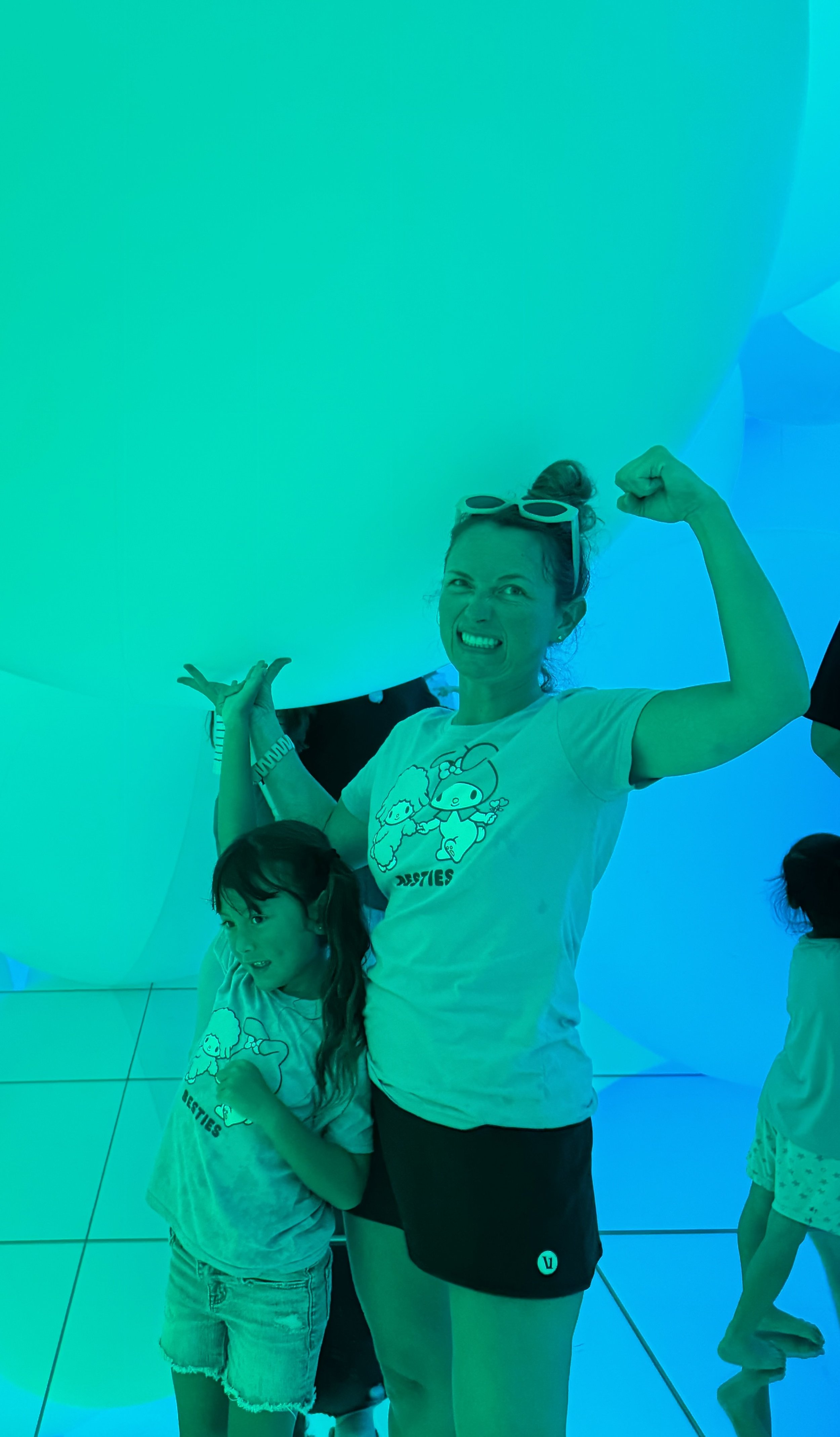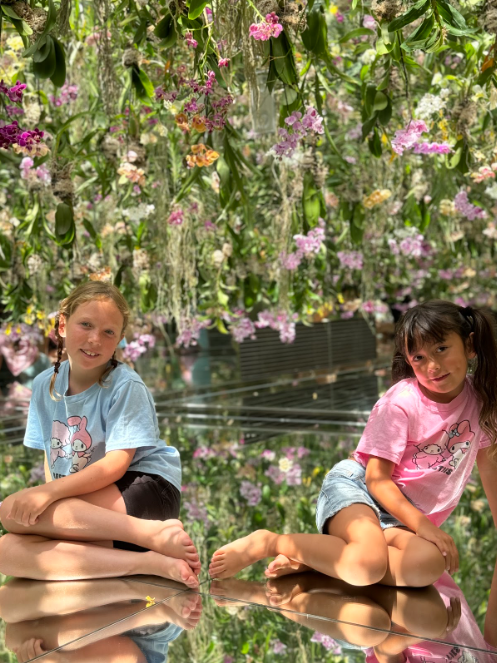

What is Borderline Personality Disorder (BPD)?
Borderline Personality Disorder (BPD) is one of the most commonly misunderstood and stigmatized mental health conditions. These individuals are often the highest utilizers of crisis and emergency mental health services in our society. This disorder is characterized by intense emotional experiences, unstable relationships, and a distorted sense of self, BPD affects an estimated 1.4% of adults, with women being diagnosed more frequently than men, however that may be due to the stigma men face with attending mental health services.

New Year, same Relationship how to Grow within your Relationship
Setting goals as a couple can be a transformative process, deepening your connection and providing a roadmap for shared growth and connection to one another. However, for couples navigating the effects of stress, mental health, parenting, trauma, and or attachment wounds; the process requires sensitivity and intentionality on a regular basis not just at the beginning of the year. Integrating the principles below offers a compassionate and effective framework for setting and achieving goals together and effectively growing together. I love to incorporate Gottman Method Couples & Internal Family Systems approaches for establishing a safe environment for goal setting.
The Gottman Method emphasizes the importance of a strong relational foundation rooted in friendship and partnership. They recommend checking in weekly during date nights on your Love Maps which promote connection and deeper reflection on life values. When setting goals, applying these principles help promote a strong connection, which permits individualization and shared meaning for both partners to grow within the relationship.

Connected During the Holidays
Handling the holidays can be tremendously hard for individuals feeling unwell. Here are some helpful strategies to assist you in feeling more connected while honoring everyones differneces.

Cultivating Gratitude: A Pathway to Lasting Sobriety
October has been a month of reflection, renewal, and commitment to a healthier lifestyle.
Halloween is over and as we wrap up #SoberOctober and start thinking about THANKSGIVING
on the horizon (hard to believe it’s almost here!), let's delve deeper into a mindset that can
strengthen our commitment to sobriety and intentional living: Gratitude.

The Power of Sobriety: Building Self-Esteem and Resilience
Today, I want to delve deeper into what I consider to be one of the most powerful and transformative impacts of sobriety: building self-esteem and resilience.
Here are a few ways that sobriety can help build self-esteem and resilience:
Improved self-awareness: When we're not clouded by substances, we have a clearer picture of our thoughts, feelings, and behaviors. We’re more present and involved in our own lives. This self-awareness can help us identify areas where we need to grow and develop.
Increased self-confidence: As we overcome challenges and achieve our goals, our self-confidence grows. Sobriety provides us with the opportunity to prove to ourselves that we are capable and resilient. And our increased awareness makes us able to see and appreciate this growth.
Enhanced self-compassion: Sobriety can help us develop a kinder and more compassionate relationship with ourselves. When we're no longer using substances to avoid our feelings, we can learn to accept ourselves, flaws and all.
Greater resilience: Sobriety can help us develop the resilience we need to cope with life's challenges. When we're not relying on substances to numb our pain, we can tap into our inner strength and face our past and our present circumstances with all our mental and emotional resources fully online.
Building self-esteem and resilience takes time and effort, but it's a journey well worth taking. Observing #SoberOctober can be that first step for you, just like it has been for so many others. Here are a few tips to help you on your way:
Practice self-care: Take care of your physical, emotional, and mental health. Get enough sleep, eat healthy food, exercise regularly, and spend time doing things you enjoy.
Set realistic goals: Break down big goals into smaller, more manageable steps. Celebrate your successes, no matter how small they may seem.
Challenge negative thoughts: When you find yourself thinking negatively about yourself, challenge those thoughts. Are they really true? What evidence do you have to support them?
Surround yourself with positive people: Spend time with people who uplift and support you. Avoid toxic relationships.
Practice gratitude: Take time each day to focus on the things you're grateful for. This can help shift your perspective and boost your mood.
Remember, building self-esteem and resilience is a lifelong journey. There will be setbacks along the way, but with perseverance and determination, you can overcome any challenge.


Human Connection: A Foundation for Suicide Prevention
Even though September (National Suicide Prevention Month) is behind us, we’re still highlighting mental health and trying to educate the public (that’s you, dear reader!) about suicide prevention. This week I want to talk about the significance of human connection on mental health, and its power to interrupt a mental health spiral that might otherwise end in tragedy.

Slow-Down September: Observing National Suicide Prevention Month
September is National Suicide Prevention Month, and the goal of those observing and promoting the event is to both raise awareness about the dangers and signs, and ways you can help, among friends and family members of individuals who may be suffering and to provide a surge of visible support to struggling individuals who simply do not know where to turn for help.

Let’s Build Strong Sibling Relationships: A Guide for Blended Families
We’ve been talking about Blended Families lately. And mostly I’ve been talking about it from a Parenting point of view. But there are other relationships in a blended family, right? I won’t go into the couple relationship right now– that is a whole other topic! But what about the SIBLINGS? Sibling relationships can be a little challenging even under the BEST circumstances. Most parents dream of their kids being best friends, but the changing dynamics of a blended family may feel difficult to navigate. It can feel like there is so much at stake! Making sure that the love between the new couple trickles down to the kids, too, is a key part of building a new Family.
I do have two really solid tips I can give you that will help, and they balance each other out.

Combating the Negative Impact of Social Media on Young Kids
In today's digital age, social media is woven into the fabric of daily life, but for young children, it often poses more risks than rewards. From unrealistic beauty standards to the lurking dangers of cyberbullying, the potential harm is undeniable. While I’m not here to wage war against platforms like TikTok, I’m joining the growing chorus of mental health experts urging parents to delay social media use until at least age 13. But here’s the key: this isn’t about taking a heavy-handed approach. Instead, let’s explore how we can prepare our children to navigate this online world with wisdom, empathy, and healthy boundaries.

How to Nurture Your Daughter's Self-Image: Everyday Tips
As a mom, I want what is best for my daughters… In a blended family, fostering independence, self-confidence, and self-love in these girls is a huge priority for me. Girls and women still face major challenges to mental/emotional health and personal success, even though things are better for our girls than they were for ourselves, and our mothers and aunts. Props to the women who’ve paved the way so far, and I’m especially loving the most recent vibe of absolutely amazing women in the headlines. Leadership, body positivity, mental health self-care– all of this is on display and I am so excited about it. BUT we definitely still have a long way to go.
So jump on my bandwagon today, and let’s talk about some practical habits you can develop to be a role model and a full-blown cheer squad for the young girls in your life!

The Unique Challenges of Step Parenting: Tips from the Trenches
Stepparenting, a topic very much on my mind lately, (if you haven’t already noticed) is uniquely tough. Let’s take a look at a few of the unique challenges that stepparents face and talk about some strategies for meeting and overcoming those challenges.

Navigating the Emotional Landscape of Blended Families: A Deeper Dive
Remember when we discussed the importance of emotional support for children in blended families? As we explored in our previous post, providing a safe and understanding environment for children to express their feelings is crucial for their well-being. This emotional support can come from both biological parents and stepparents, creating a more nurturing and supportive atmosphere for everyone involved.
Building on that foundation, let's delve deeper into the specific emotional challenges children may face in blended families and how to address them effectively.

Blending Families after the Chaos- Evidence-Based Interventions for More Successful Family Outcomes
Blending families can be a complex process, especially when high-functioning ambitious families with a lot of moving parts. These children & adults, who typically exhibit strong cognitive and adaptive skills, might still face unique challenges in adjusting to new family dynamics. Successful integration demands careful planning and evidence-based interventions to foster harmony and positive outcomes for all family members. In this blog, we'll explore effective strategies grounded in the latest mental health research to assist in blending families where high-functioning children are a key component.

Rekindle
We’re talking about diagnosing and healing from BURNOUT this summer– partly because it’s a part of my personal journey right now, and partly because it is, or soon will be, a national epidemic that we would be foolish not to address, as mental health professionals. Today I want to talk about rekindling your vision after burnout.

Professional Burnout: 8 Steps to Heal and Restore
Professional burnout is a significant issue affecting many adults today. Especially professional parents. Here is an accessible quick guide on signs & symptoms, plus eight ways to cope with suspected or diagnosed extreme professional burnout.


Happy Father’s Day, Single Moms!
I know this day is usually reserved for Dads– whether we are celebrating them, mourning them, dealing with their absence or abuse, or contemplating how to be the dad you want to be, BUT. Today I thought I would turn that upside down for a minute and address single moms. The parents who are doing their best to be BOTH Mom and Dad to their little ones. I want to encourage you, celebrate your efforts, and give you a few little tips for getting through this holiday with your child– especially if they are a little too young to fully grasp the situation.

Why Pride Matters for LGBTQ Mental Health
June is Pride Month and I am celebrating the courage, joy, and IDENTITY of my LGBTQ neighbors and friends. I want to kick off the month by talking a little bit about why Pride Month is so crucial for lgbtq mental health.
